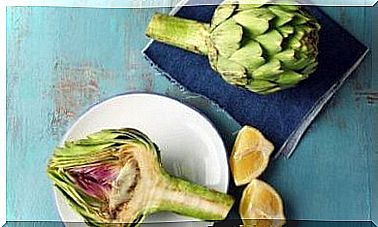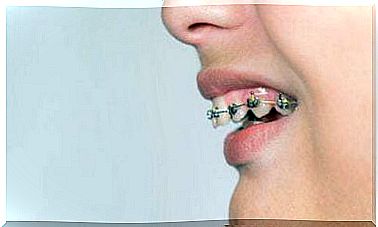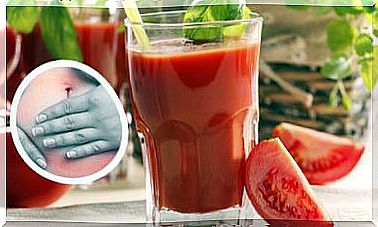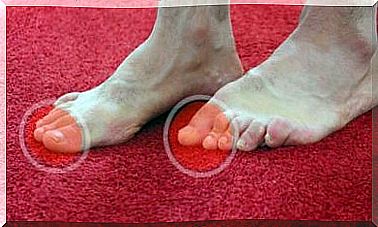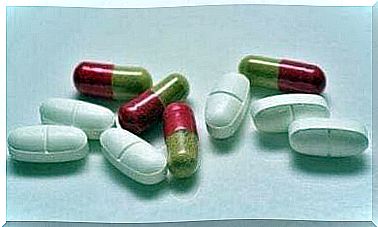Effects Of Diet On The Skin: What Are They?

The effects of diet on the skin are not always evident, but science has confirmed the direct role of nutrition in the health of the skin, as well as of most organs.
There are several myths and prejudices on the subject, but also scientific studies. The latter demonstrate the effects of the diet on the skin. Some foods, in fact, strengthen this organ, while the lack of some nutrients can cause dermatological diseases.
There are, therefore, negative effects and others that help prevent or treat pathologies or skin disorders. Some treatments, in fact, require changes to the nutritional plan to achieve results.
What are the effects of the diet on the skin?
The skin is the largest organ in the body, according to research published in 2019. It accounts for about one sixth of body weight. It performs multiple functions which include:
- Protection from external agents.
- Thermoregulation.
- Absorption of ultraviolet rays.
- Vitamin D production.
- Maintenance of the water balance.

There are several skin diseases directly related to food. This is the case of marasma or pellagra, two diseases caused by a deficiency of vitamin C or proteins. Likewise, low-iron diets are associated with alopecia, and alcohol consumption increases the symptoms of psoriasis and rosacea.
Conversely, there is no scientific evidence to confirm that high-fat foods are linked to acne or similar ailments. Nor has the correlation of chocolate to pimples been proven, as is often believed.
Aging and nutrition
Of the effects of diet on the skin, aging is undoubtedly the most evident. Recall that this natural process can come from two sources. We therefore speak of extrinsic aging when caused by environmental factors, especially solar radiation.
Intrinsic aging is instead caused by genetics and lifestyle, therefore also by food. As we can read in an article published in the journal Anais Brasileiros de Dermatologia , together with a reduced metabolic function, it causes inflammation and skin aging.
It has also been shown that foods rich in antioxidants are useful for reducing the effect of free radicals, thus slowing down skin aging. It is recommended to eat a lot of fruits and vegetables.
Diet, acne and sun damage
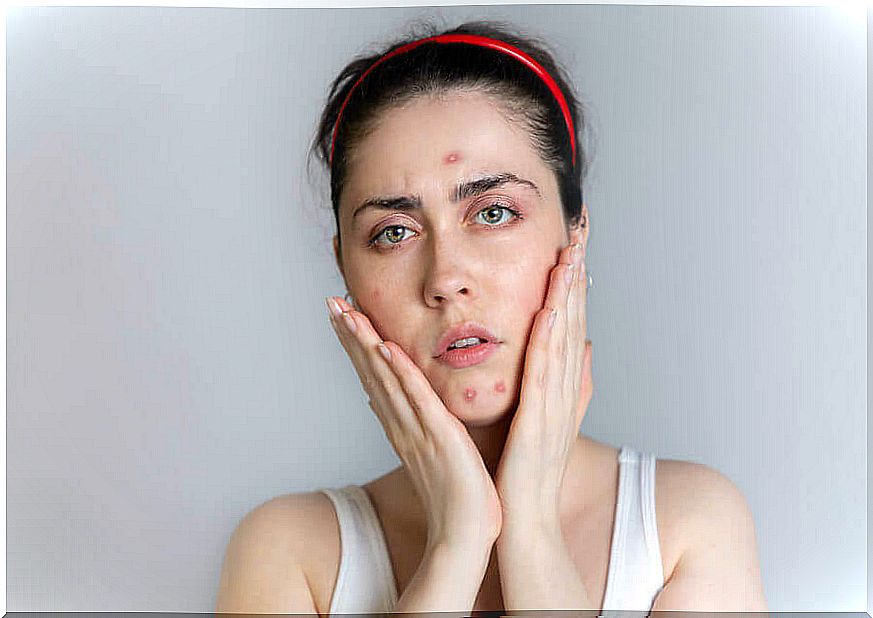
Some studies indicate that dairy and sugar-rich foods promote acne. The same goes for lactose-based supplements. Chocolate is also among these foods, but only if made from milk; cocoa as such does not affect acne.
On the other hand, foods rich in beta-carotene are known to protect the skin from sun damage, as well as the immune system. In other words, a diet rich in beta-carotene helps prevent photoaging and skin cancers.
Skin and diet disorders
Diet-related skin disorders were classified into four groups. The first corresponds to skin disorders closely related to diet. Among them, the most important is herpetiform dermatitis. This condition is associated with the consumption of gluten.
The second group is that of skin disorders probably related to diet. We find atopic dermatitis, acne, psoriasis, pemphigus, urticaria and contact dermatitis. These disorders are often linked to food allergens, which in 90% of cases correspond to wheat, milk, soy, fish, eggs and peanuts.
The third group includes anomalies related to nutritional deficiency, namely: kwashiorkor, pellagra, scurvy and marasma. Food deficiencies can lead to the development of such pathologies. Finally, we find the group of skin disorders related to nutritional surplus.
In the latter case, the associated diseases are obesity, carotenemia and lycopenemia. There are a number of conditions that can appear more frequently in obese people, such as candida intertrigo, stretch marks and the like.
Carotenemia is caused by the excessive consumption of carotenes. Lycopenemia, on the other hand, is caused by the excessive consumption of fruit with a high content of carotenoids.
Poor nutrition is reflected in the skin
Improper diet can affect skin health. Various skin disorders are due to nutritional deficiencies or excessive consumption of substances with inflammatory and oxidative capacities.
In light of this, it is important to follow a varied and balanced diet that favors the intake of fresh foods over ultra-processed ones.




